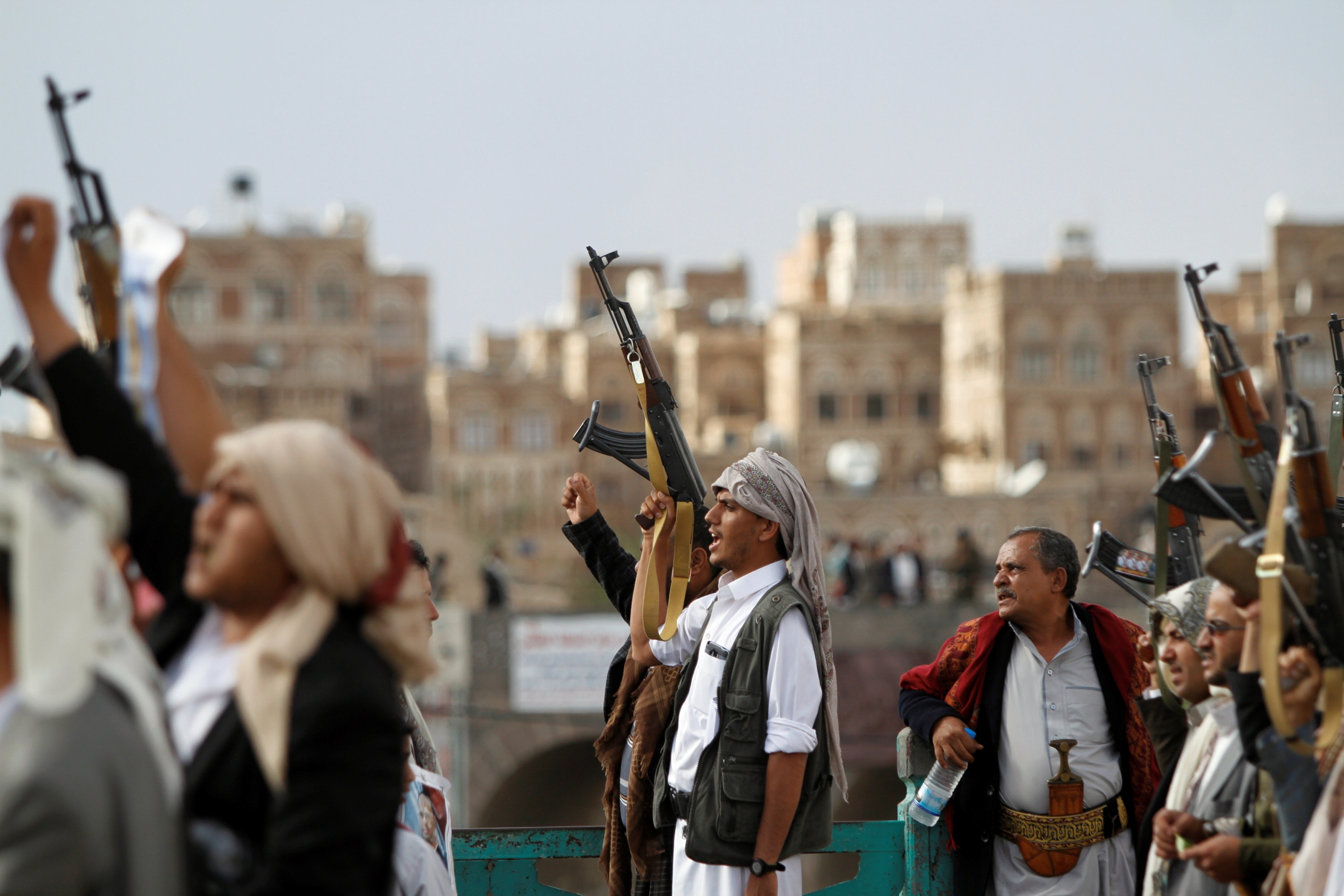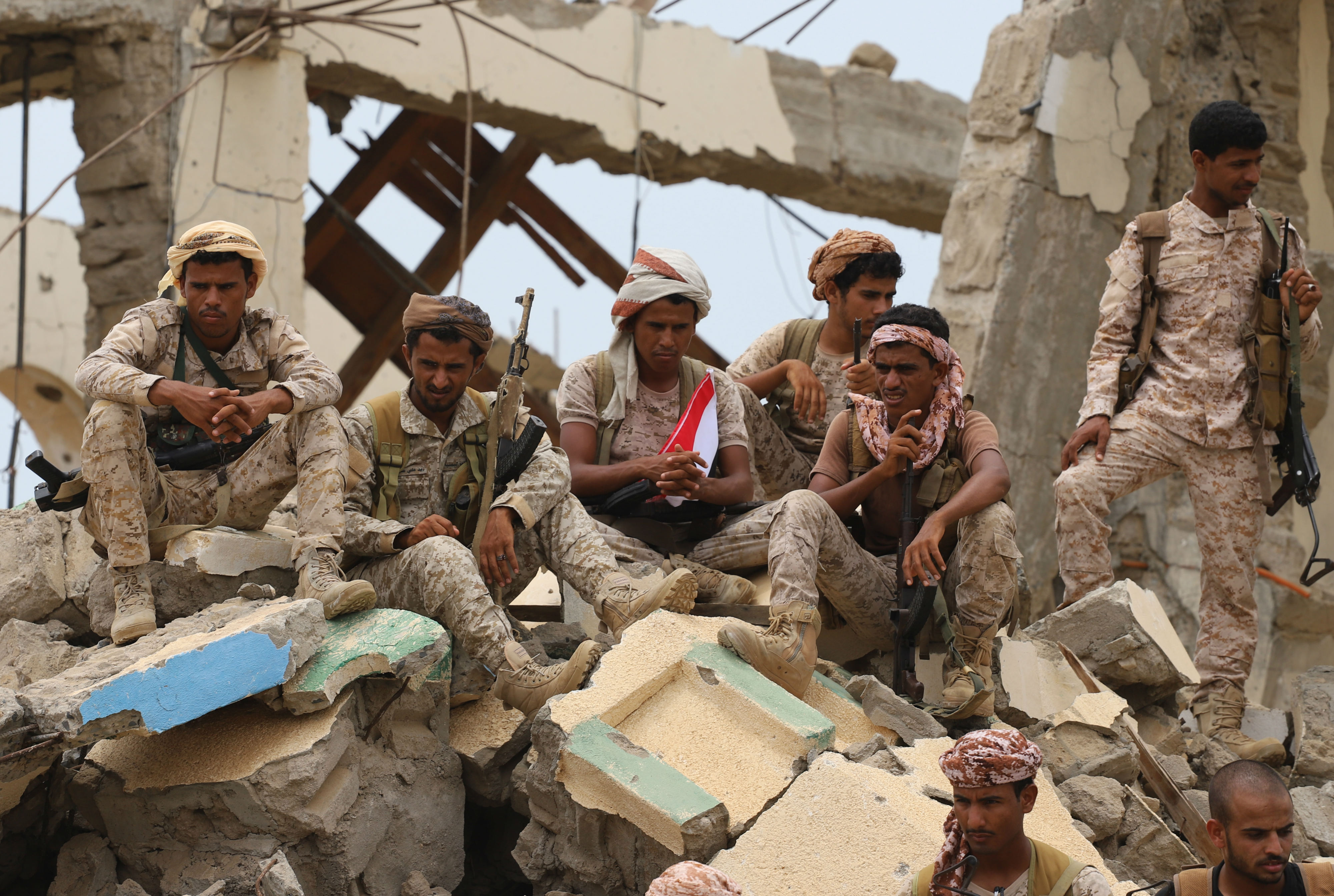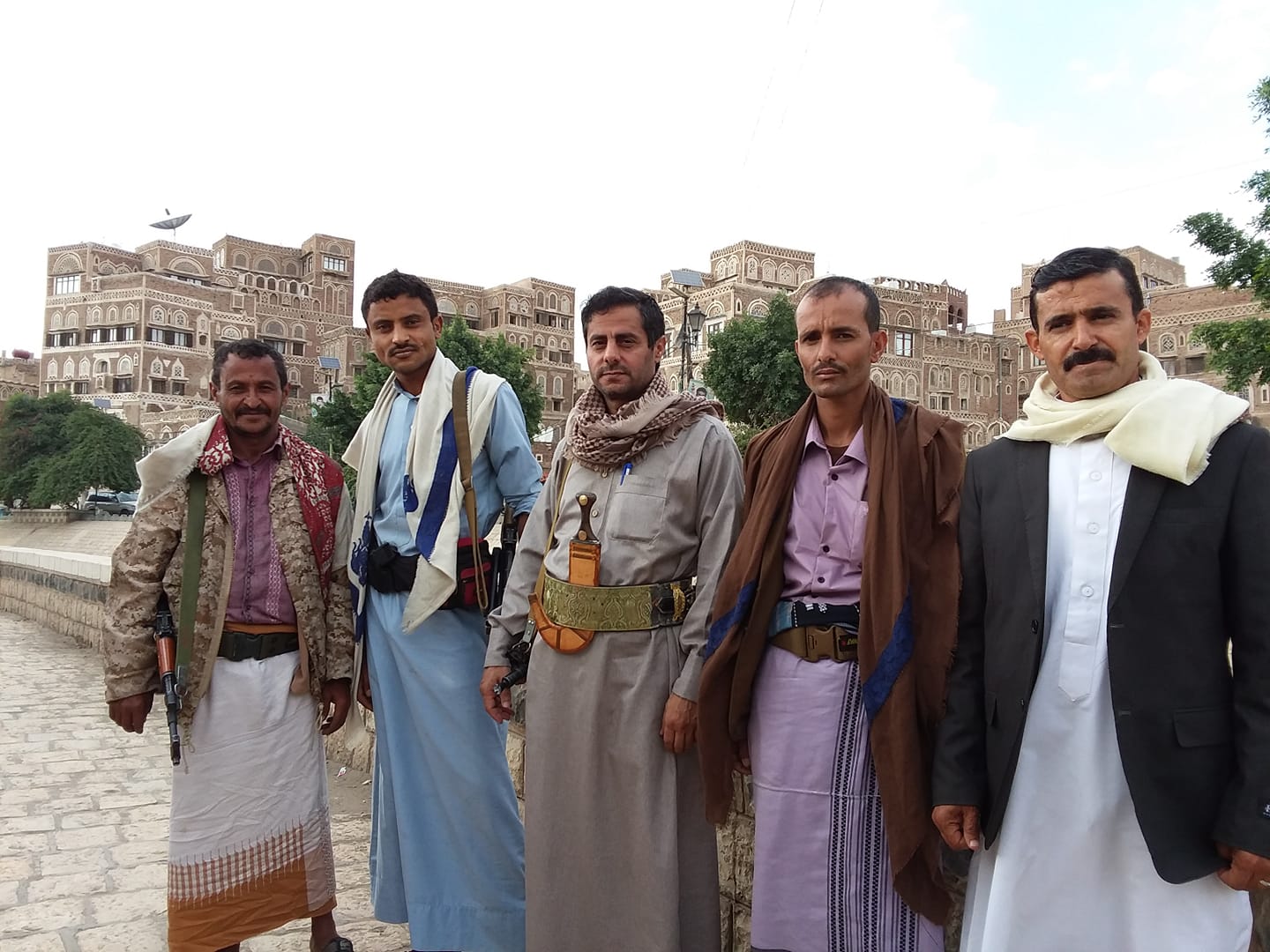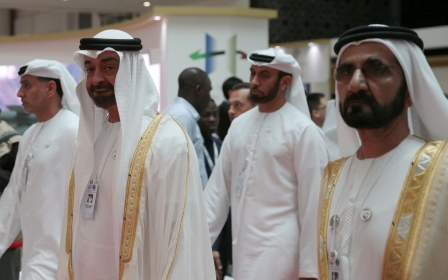Yemeni military leaders abandon Hadi following Houthi offer of amnesty

Motivated by either money, sectarian affiliations or tribal allegiances, defections in Yemen’s war would not normally raise many eyebrows.
The desertion of military leaders fighting with Houthi rebels to join pro-government forces has come to be seen as a normal occurrence.
Recently, however, there has been an increase in defections from the other side of the divide.
In March, senior pro-Houthi tribal leaders announced a general amnesty for those fighting alongside government forces. They called on their kinsmen to return to where they belong and fight the Saudi-led coalition backing President Abd Rabbuh Mansour Hadi.
Accompanied by two military vehicles and a few armed soldiers, the military police chief in al-Yatama, one of the frontlines in northern al-Jawf province, fled the government-held area on 20 April to join the Houthis in the capital Sanaa.
Colonel Ahmed al-Magnahi told the pro-rebel Saba news agency that efforts led by government forces to implement the Saudi-led coalition’s imperialist plans were behind his decision, and that of other soldiers, to join the rebels.
Constantly humiliated
Magnahi said pro-Hadi forces are harshly treated and constantly humiliated by Saudi and Emirati officers in the coalition, and called on his former comrades to take advantage of the general pardon and fight against the coalition.
A week later, the leader of Hadi’s second battalion in the fifth brigade of the border guards, Colonel Ali Nasser Hager, arrived in Sanaa with a small convoy and announced his loyalty to the rebels.
Defections from Hadi’s camp have been diverse in rank. Besides military leaders, many lower-ranking soldiers have also fled government-held areas to join the rebels, with most belonging to northern Yemeni tribes.
For military men such as Magnahi, crossing into enemy territory isn't too difficult.
Checkpoints set up on the main roads connecting government and rebel areas are considered a hassle for civilians, who usually complain about inspections.
However, high-ranking military leaders and soldiers have reportedly been able to move through the checkpoints without hindrance.
There have been no reports of military personnel getting arrested for trying to flee areas from either side of the checkpoints.
'To err is human'
Mohammed al-Dailami, a Houthi leader and political analyst, said most military leaders who signed up to fight with Hadi’s forces were and continue to be motivated by money.
“The mercenaries are fighting with the aggressors [the coalition] against Yemen because of Saudi money and not for any other reason,” he told Middle East Eye. “This has led to thousands of Yemenis fighting against their country.”
As Yemen suffers from an economic war, Dailami said, Saudi Arabia and Hadi’s government are exploiting the poverty in the war-torn country to attract more fighters who are desperate for money.
Dailami said pro-Houthi tribes would forgive members of their communities who have been fighting with the coalition and urged them to return home, where he said they can even lead normal civilian lives if they do not wish to fight anymore.
“To err is human. There are many Yemenis who realised their mistake and defected in order to fight for the country. To these fighters, [Yemen] is dearer than Saudi money,” he said.
Spies inside Hadi’s camp
Pro-government forces and Houthi rebels regularly trade accusations over the real reasons behind the desertions witnessed in both camps.
For instance, Sabri Mohammed, a pro-Hadi fighter, told MEE that many military leaders who defected to Sanaa were members of the Hashemite tribe, the family from which the Houthis descend who ruled Yemen for hundreds of years until 1962, and were working as Houthi spies inside the government’s army.
'The Houthis believe in kinship and they want Yemenis to be servants to their leader'
- Sabri Mohammed, pro-Hadi fighter
Mohammed said these leaders did not play a role in any military achievement against the rebels, but they had instead facilitated Houthi advances in some areas.
“Only a few of them returned to Sanaa because they belong to the same lineage as the Houthis,” he said, adding that the rebels are “doing their best to create disputes among Hadi’s forces”.
Mohammed was a major in the Special Security Forces in Sanaa when he fled to the city of Taiz after the capital was overrun by the Houthis in September 2014. He’s been fighting the rebels ever since, with a pledge to “liberate” Yemen from those who came to power by force and not through elections.
“The Houthis believe in kinship and they want Yemenis to be servants to their leader, a follower of Iran, while we believe in democracy and a civil state. We cannot accept such reactionary thoughts,” he said.
Personal interests over country?
Sadeq Faqeeh, a seasoned journalist based in Aden, said many soldiers and military leaders are not fighting out of loyalty to Yemen, but rather out of “personal interests”.
“If military leaders are loyal to their country, they wouldn’t destroy it for vague reasons. They would instead unite under the umbrella of the state,” he told MEE.
“Most soldiers do not know why they are fighting,” said Faqeeh, who believes they are instead motivated by their need to provide for their families.
The desire to earn a living even encourages Yemenis to fight on hot, dangerous fronts such as Yemen's border with Saudi Arabia, he said.
“It is money that forced many Yemenis to fight. When we see military leaders desert Hadi’s forces and join the Houthis, and vice versa, we can understand that their personal interests have shifted from one side to the other,” he said.
The economic crisis Yemen is suffering under has clearly played a major role in the increased movements of military leaders and soldiers in between the two warring parties, according to Faqeeh.
“I hope that the country’s interests defeat personal interests and that all military leaders and officials would think of Yemen and stop this atrocious war,” he said.
Middle East Eye delivers independent and unrivalled coverage and analysis of the Middle East, North Africa and beyond. To learn more about republishing this content and the associated fees, please fill out this form. More about MEE can be found here.








